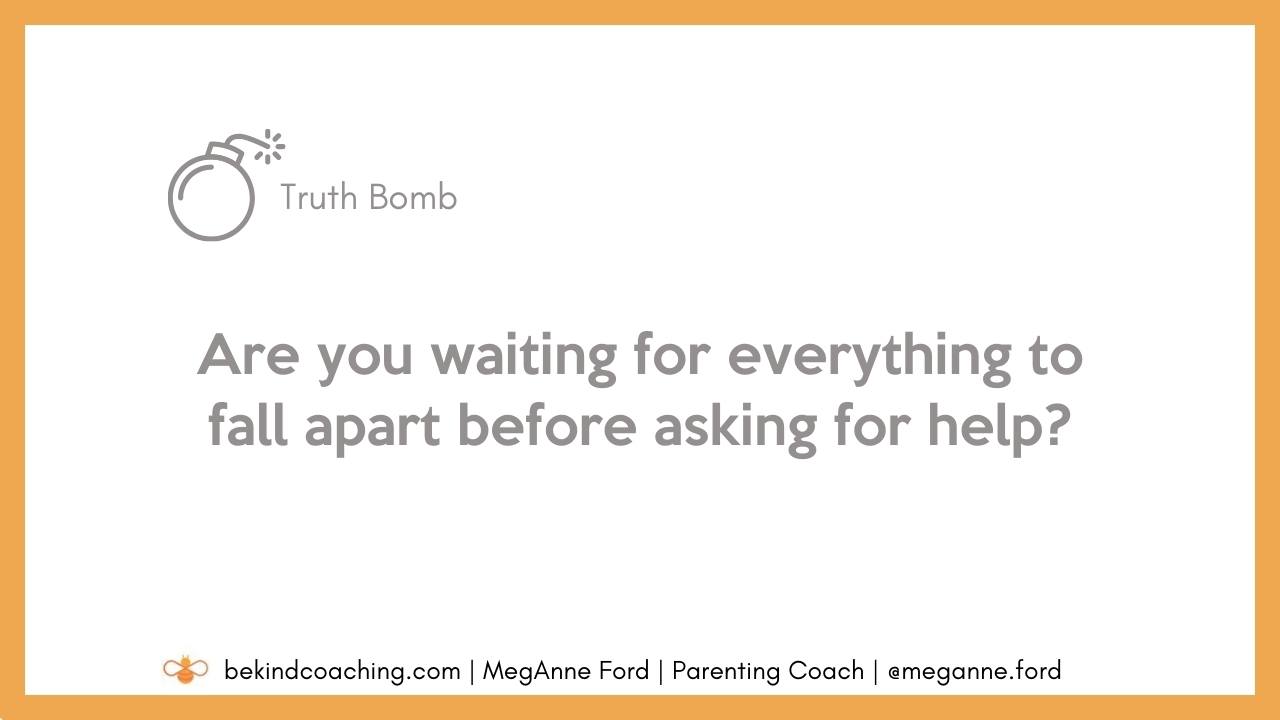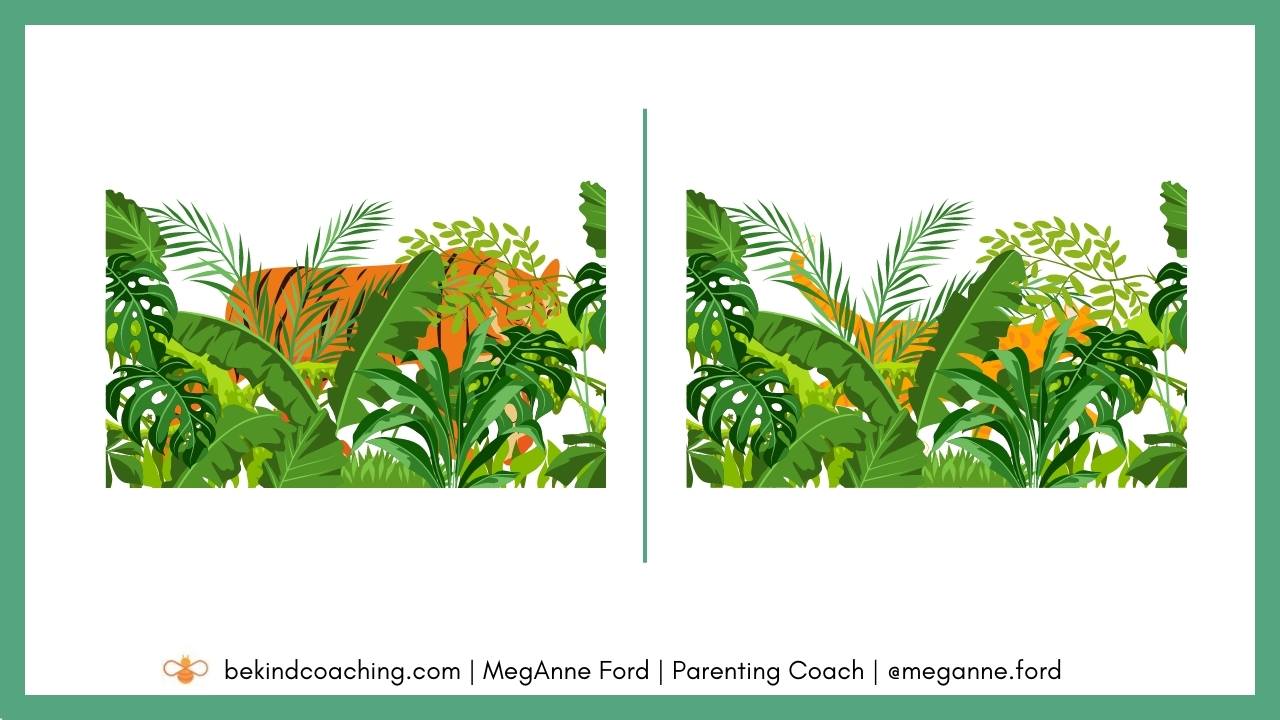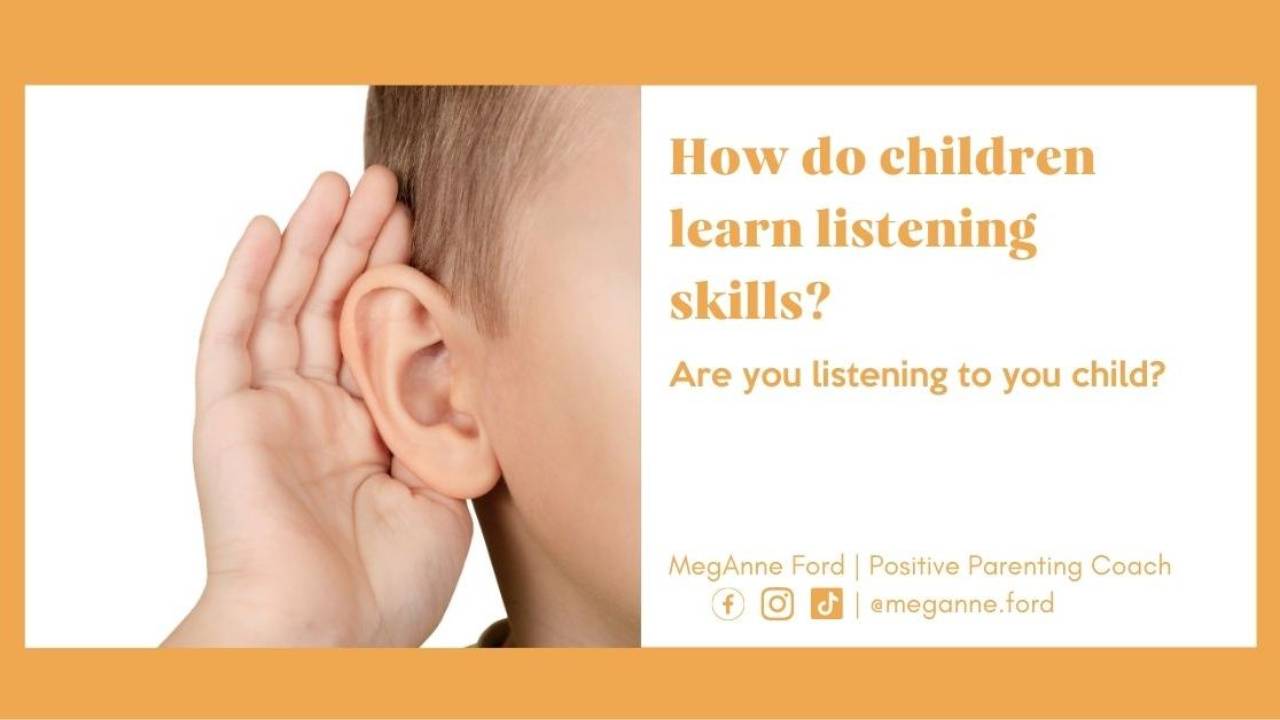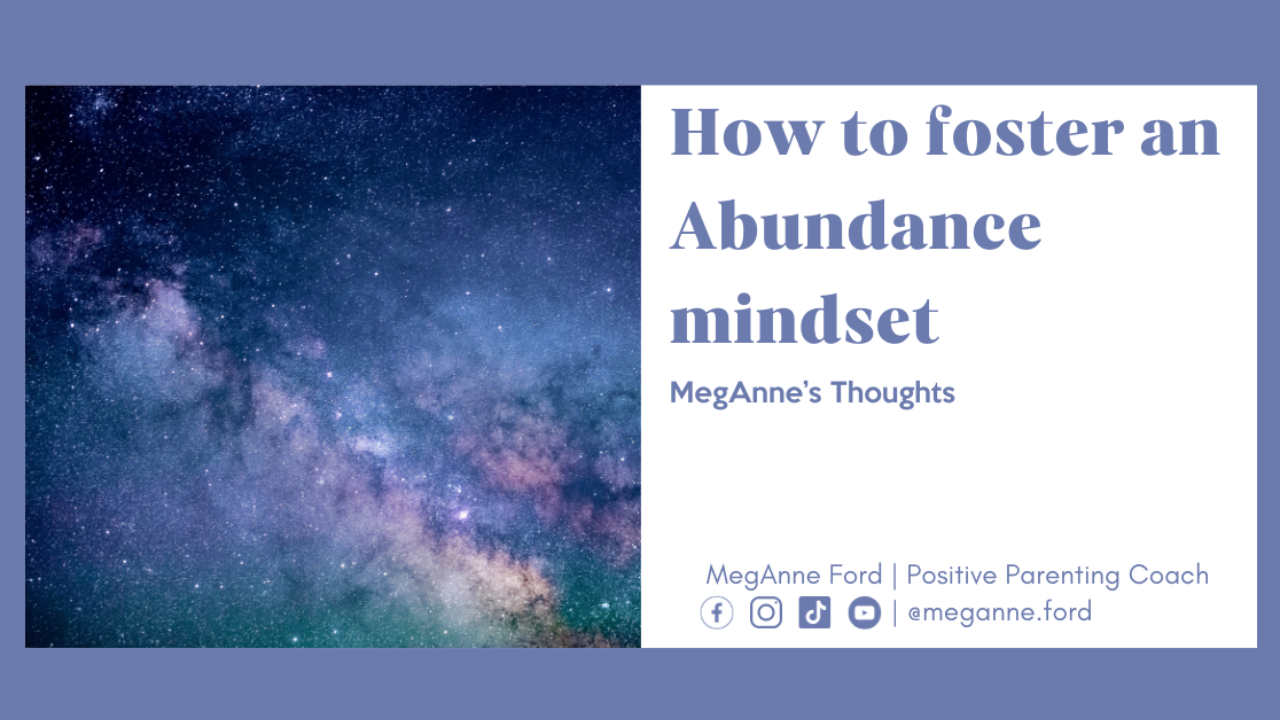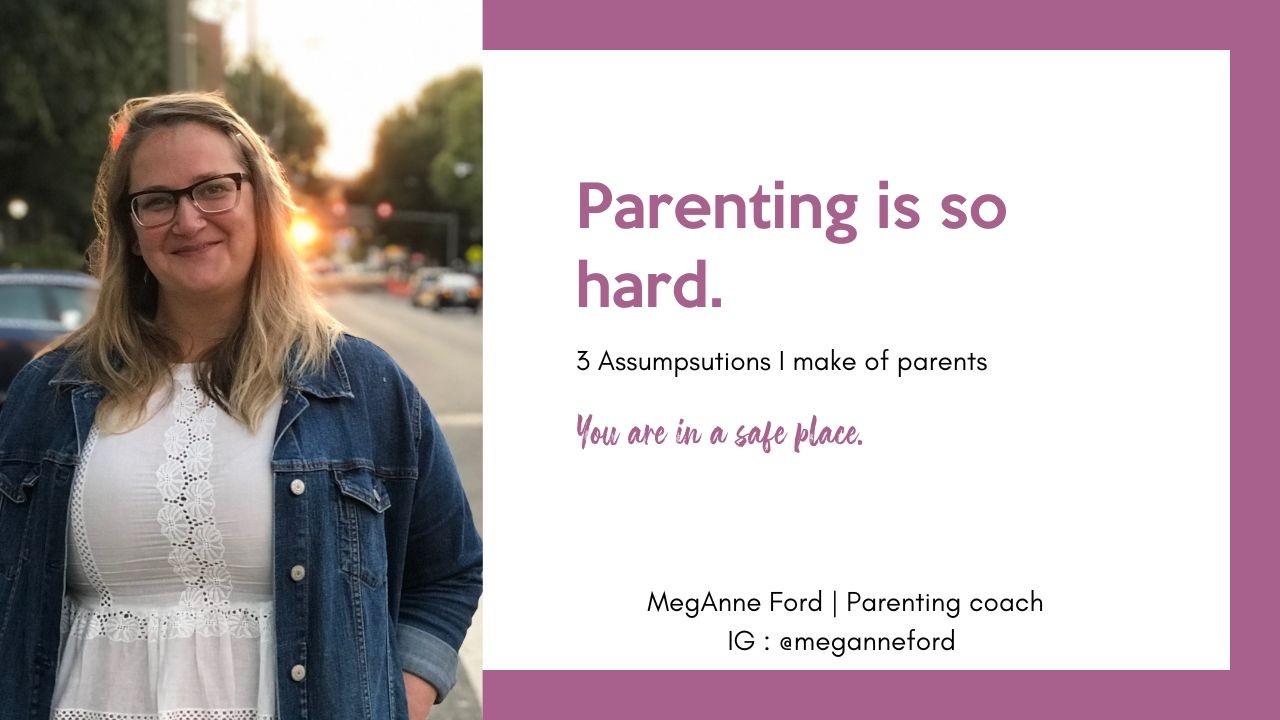
Why is Parenting so Hard? 3 Assumptions I make of Parents
Dec 15, 2022
Parenting is so hard, and you are in a safe place.
Sometimes, parenting is so hard, and I am here to say it doesn't always have to feel so heavy and draining.
What do you try before asking for help and support?
Would you maybe read a book? Would you perhaps post about it on social media? Would you talk to a trusted friend? Would you google it?
Here's the refreshing truth: You can't Google yourself to find a better relationship. A relationship is worked in action and with the other person.
Within online parenting classes, I see parents not asking for help soon enough and putting pressure on themselves as individuals to just figure it out alone. I commonly hear from the peanut gallery, “good parents don’t need help.” I will say the opposite; parenting is difficult, and the best parents invest in the help they deserve.
I am the first to admit that I let things fester too long before I ask for help. It is hard to ask for help. It can feel heavy and activating. Stories can pop up and make it even harder.
What we can all remember in those moments is that often what is hard is simply unpracticed. So, let’s peel back a layer and allow it to feel safe to ask for help and support.
Over the past five years as a parenting coach, I've worked with hundreds of parents in multiple containers. I want to share with you some common blocks to asking for help and entering into the space of being supported in parenting.
One of Brene Brown’s quotes struck me as I thought about this topic.
“Shame flourishes in the dark. It thrives in secrecy, silence, judgment, and the belief that you are alone. Imagine that you're wanting to learn a new skill. Immediately, you begin to think ‘I could never do that. It's too hard, and I'm too stupid and talentless’”
The quote encourages us to bring shame to light and talk about it.
What Are Assumptions?
First, we will define a few words to start on the same page. Once we have defined the word assumption, we’ll explore, reframe, and shine a light on some of our assumptions so we can release them.
Assumption: a thing that is accepted as true or as certain to happen without proof.
Why do we assume? Take a moment and think about all of the assumptions that keep you safe. We have to assume that gravity exists, we have to assume that we will wake up in the morning, and we have to assume that the sun will rise.
Assumptions are an adaptive process, meaning something that helps us, and that adaptive process can shift into becoming a maladaptive process if left unchecked.
Is it a tiger or a cat?
Let’s illustrate this by thinking about a tiger. Imagine that a tiger is right in front of us. Our bodies are probably shifting into a protective stance. We're thinking, okay, we want distance. Is there anything between the tiger and us? Are we at a zoo, or are we out in the wild? Our bodies are designed to assume that that tiger is a threat. So, if we were out in a jungle and we could see a tiger starting to peek through the foliage or if we started to pick up what we could assume was a tiger, we would shift into keeping ourselves safe.
It would be survival, but sometimes what we see peeking out of the foliage our brains interpret as a tiger may simply be a cat, but our bodies go into that same protective stance, and our survival instincts kick in, but it's a cat.
I see this come to play often in parenting, asking for help and support, and in places that feel very tender. I see three hurtful assumptions being made and brought to life as truths.
Three hurtful assumptions
The first hurtful assumption that I see is;
Asking for help means that you are inadequate or have a shortcoming. That assumption could lead to more stress and be highly challenging and charged.
The second hurtful assumption I see is;
Other parents just know what to do. This is where parents compare their parenting style to those they see at the park, school pickup line, or anywhere with limited interaction. Those ‘perfect parents’ just know what to do magically. They just know. Questions come up like; What am I missing out on? What is it that I don’t know? Where am I lacking?
The third hurtful assumption that I see, this one I am close to, is;
Only bad parents work with parenting coaches. There are spaces where it is very normal or encouraged to work with a parenting coach, such as adoptive or foster care and court-appointed parenting classes. I'm here to normalize that all parents would benefit from working with a parenting coach. All parents could work on feeling comfortable and happy with their parenting while in a supportive community.
The three assumptions I make about parents
Now, let’s move on to the three assumptions I live by every day working with parents. Maybe you can start replacing the hurtful assumptions above with mine about yourself and other parents in your circle.
My first assumption is;
You are a good parent. Parenting is difficult, and you are a good parent right now. Two things can be true because you are a good and worthy human. In my world, I don't even believe in bad parents.
This assumption allows us to be open to assessing and improving the parenting methods being used.
My second assumption is;
You are trying. I know you're trying. I know it's probably the first thing on your mind when you wake up and one of the last things before sleep. If you're still reading, you're probably trying all the time.
My third assumption is;
You love your child. When a parent comes to a one-on-one consult, they begin by saying, “I know I love them, I know they're good kids, they're just so smart, and I love them so much, parenting is so hard, and I'm trying.”
But what about?
I often hear, “Meganne, do you really assume that all parents are good? What about this parent that I saw on the news?”
Yes, I believe those parents, wherever they are, are good people. I encourage us to label the action, not the actor. Their action may have been misaligned and not the best, but they are still good and worthy people.
All behavior is communication. What might their behavior be communicating? Their behavior might be communicating a lack of personal or systemic support, or they were doing their best.
When we assign morality to people, it blocks us from accepting our messy moments.
Inside my Online Parenting Programs, we explore how deconstructing the good and bad parents binary opens up doors to new ideas, beliefs, and the beginning of seeing the behavior as a communication.
Bonus: Behavior is communication
I remember back to my third-grade spelling test. I would come home with a failing grade, and my dad would say things like, “Why aren't you studying harder? Why aren't you trying harder? Why do you keep making these mistakes?”
I think many of us have heard those phrases. Another option for parents in these moments is to clue in and say, ‘She's making those mistakes. What's going on here? Let me get curious to support her.’
My father's toolbox consisted of ‘let me add pressure, let me add shame, let me add restrictions, let me punish her into doing better.’ Those are his defenses showing up, finding excuses, and wanting reasons.
The result of his toolbox is that I learned how to cheat. I came home with passing grades, and my dad was content. I was able to avoid the pain of punishment and shame by cheating. Unfortunately, the impact of that action is that spelling is a trigger for me even to this day.
This is an invention to access. Are we have a positive or negative impact after a conflict has happened?
Should I assume that my parents didn’t love me and were bad people? No, they're not bad people because bad people don't exist. They loved me so much, and they had a misaligned toolbox. They had a toolbox full of survival tools, and they stayed blocked from accessing the help and support to focus on a positive impact. I can say this confidently after many years of self-reflection and growth.
learn more about impact here - Am I a bad parent? How to start connecting to your child.
I don't make parents love their children more.
I help parents love their Parenting methods.
Parenting is so hard. I am here to help parents find comfort and confidence in how they parent. I want you to feel confident when you navigate those challenging moments. Like out in public or around family or daily challenges that keep popping up. Secure attachment is not based on how much you love your child or how much they love you. It's measured by the quality of safety, soothing, security, and sensitivity of a caretaker to a child's needs, using the attachment theory.
Where have you been holding on?
What assumptions do you hope that I make of you?
Where have you been making positive assumptions? With feelings of lightness.
Where have you been making negative assumptions? With feelings of heaviness.

